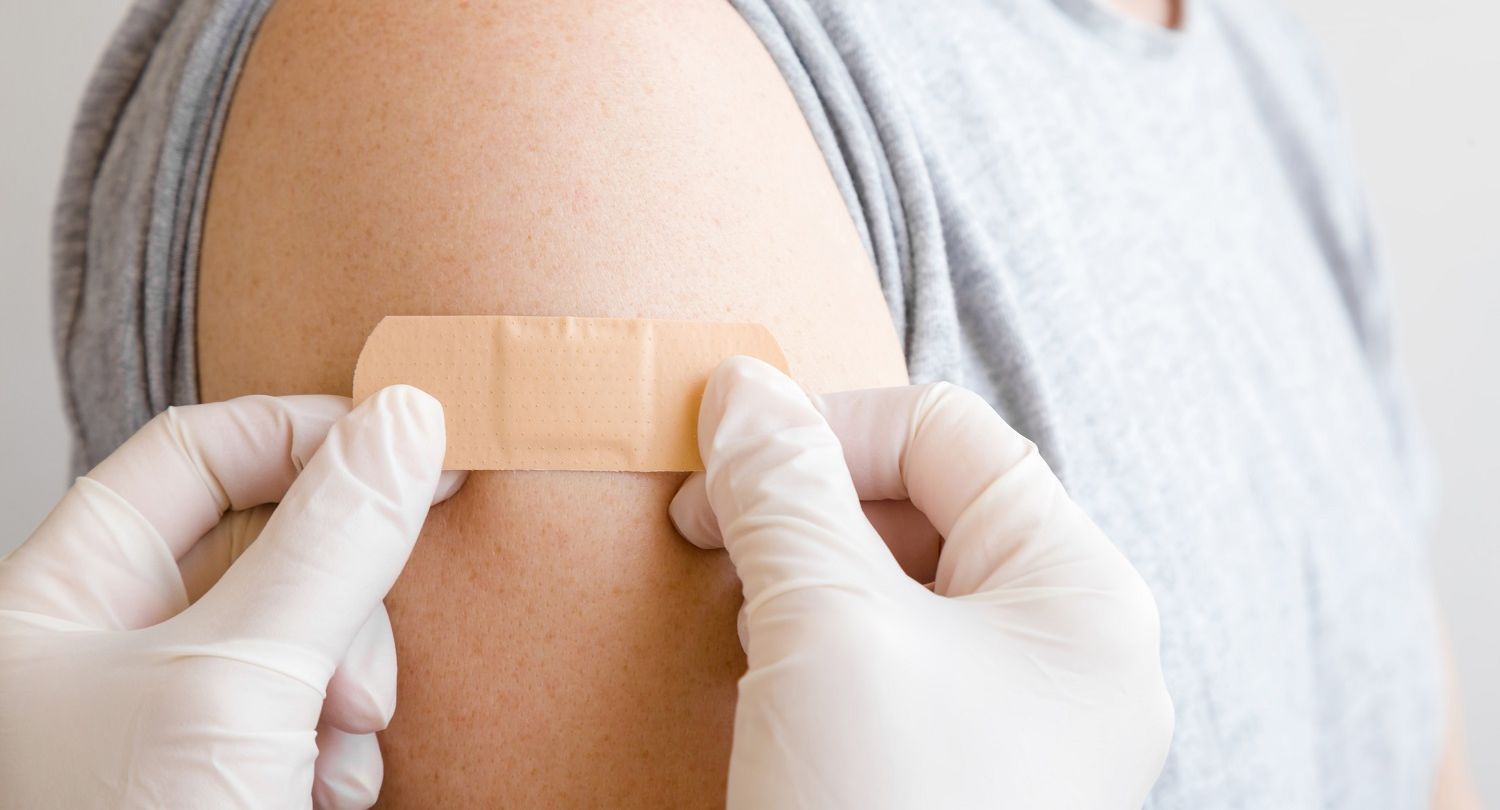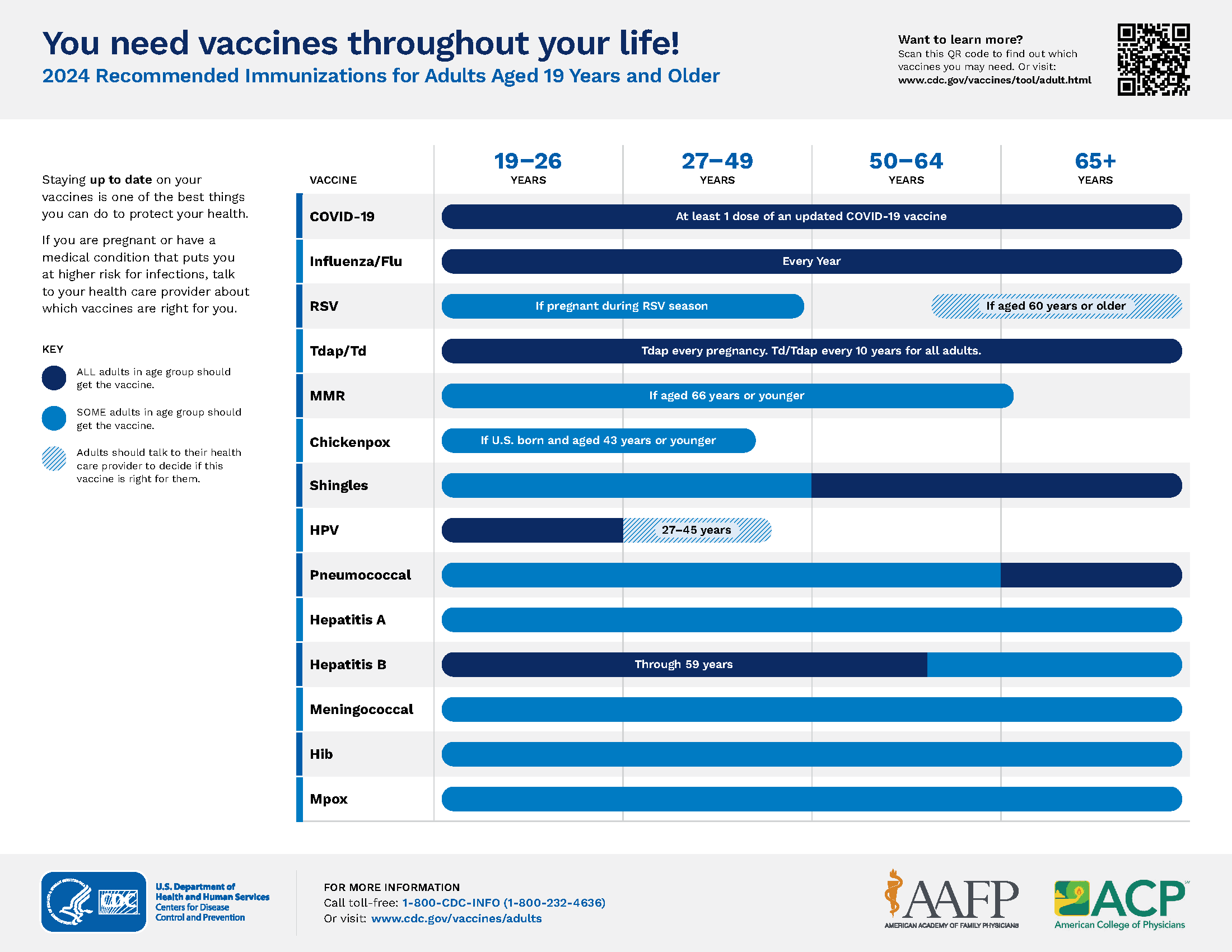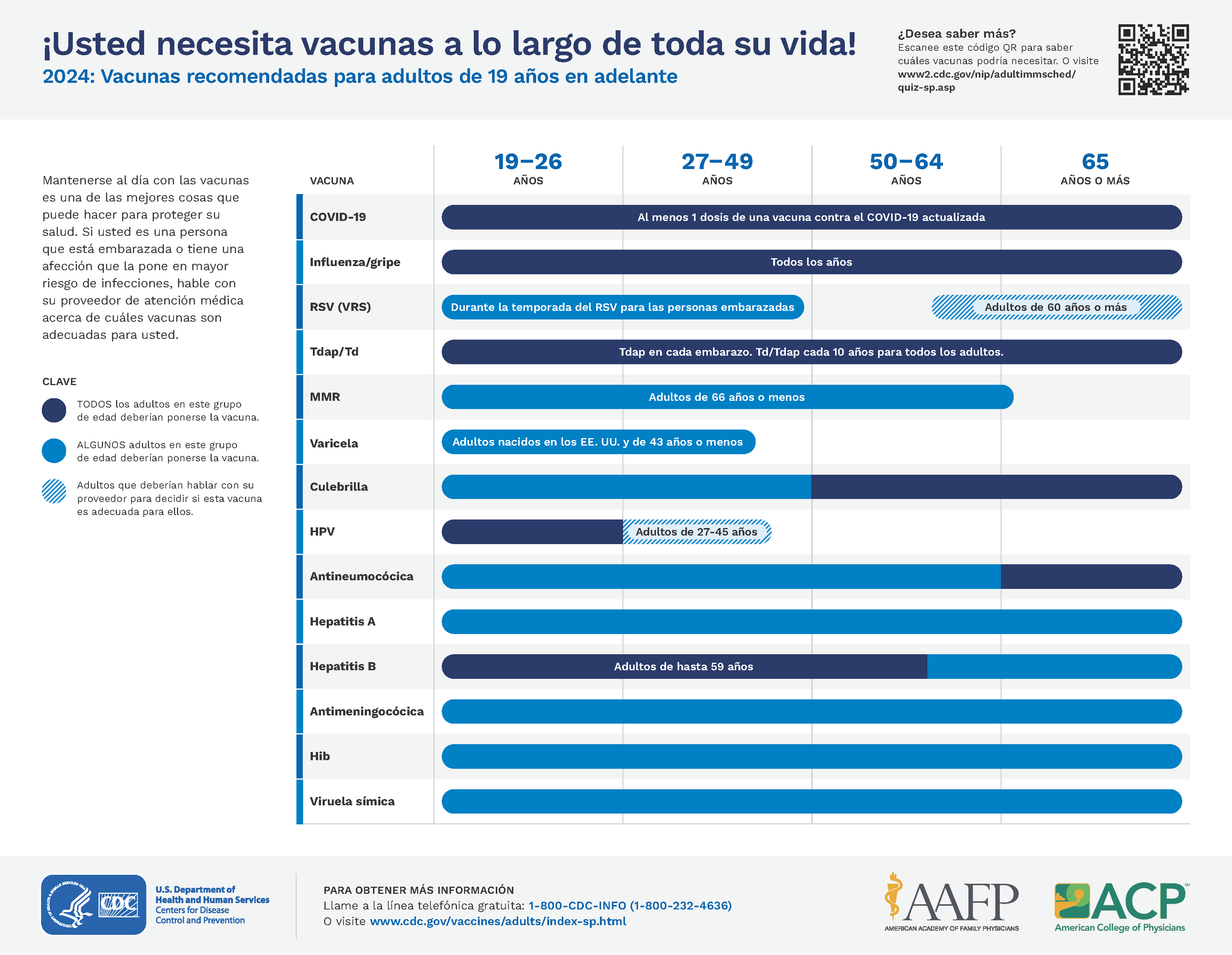ECDHD's Vaccines for Adults (VFA) program offers vaccines for adults, 19 years and older, who are uninsured. Any patient who is 19yrs and older that HAS Medicaid will now be treated as if they have private insurance. VFA suggests a donation of $19.82/vaccine, but no one will be refused if they are unable to donate.
ECDHD also provides vaccines for insured patients of all ages, including travel vaccines.
Vaccines available:
- Tdap (Tetanus, Diphtheria, Pertussis Vaccine)
- Hep B (Hepatitis B)
- Influenza
- HPV (Human Papilloma Virus)
- Hep A (Hepatitis A)
- TD (Tetanus and Diphtheria)
- Meningo (Meningococcal A,C,W,Y)
Immunizations are not just for children. Protection from some childhood vaccines can wear off over time. You may also be at risk for vaccine-preventable disease due to your age, job, lifestyle, travel, or health conditions.
All adults need immunizations to help them prevent getting and spreading serious diseases that could result in poor health, missed work, medical bills, and not being able to care for family.
All adults need a seasonal flu (influenza) vaccine every year. Flu vaccine is especially important for people with chronic health conditions, pregnant women, and older adults.
Every adult should get the Tdap vaccine once if they did not receive it as an adolescent to protect against pertussis (whooping cough), and then a Td (tetanus, diphtheria) booster shot every 10 years. In addition, women should get the Tdap vaccine each time they are pregnant, preferably at 27 through 36 weeks.
Other CDC Recommended Vaccines
Review this information and discuss it with your healthcare provider to make sure you are up-to-date and receiving all the vaccines recommended for your age and life situation.
Adults 19 - 26 years
- HPV vaccination for all preteens at age 11 or 12 years (can be given starting at age 9 years).
- HPV vaccination for everyone through age 26 years, if not vaccinated already.
HPV vaccination is not recommended for everyone older than age 26 years. However, some adults age 27 through 45 years who are not already vaccinated may decide to get HPV vaccine after speaking with their doctor about their risk for new HPV infections and the possible benefits of vaccination. HPV vaccination in this age range provides less benefit, as more people have already been exposed to HPV.
Adults 50 years or older
- Shingles vaccine, which protects against shingles and the complications from the disease (recommended for healthy adults 50 years and older) (ECDHD does not offer the shingles vaccine but it is available at many local pharmacies).
- Pneumococcal polysaccharide vaccine (PPSV23), which protects against serious pneumococcal disease, including meningitis and bloodstream infections (recommended for all adults 65 years or older, and for adults younger than 65 years who have certain health conditions)
- Pneumococcal conjugate vaccine (PCV20), which protects against serious pneumococcal disease and pneumonia (recommended for all adults with a condition that weakens the immune system, cerebrospinal fluid leak, or cochlear implant)
Vaccines for International Travelers
Visit the CDC's Traveler's Health page to learn more about the vaccines you need before traveling out of the United States.
Vaccines for Immigrants and Refugees
Refugees and immigrants seeking admission into the U.S. are required to have a medical examination.
During the medical examination, a healthcare professional checks for specific diseases and assesses immunization status. The healthcare professional may run blood tests to find out which vaccines the refugee or immigrant may need.
Learn more at the CDC Vaccine Information for Adults: Immigrants and Refugees page.
Wondering what vaccines you need? Check out the Adult Vaccine Assessment Tool. Answer the questions. Get a list of vaccines. Discuss the list with your doctor or health care professional.
Why Vaccines are Important for Older Adults
Vaccines Are Very Safe
- Vaccines are tested and monitored. Vaccines go through years of testing before the Food and Drug Administration (FDA) licenses them for use. Both the CDC and FDA continue to track the safety of all licensed vaccines.
- Vaccine side effects are usually mild and go away in a few days. The most common side effects include soreness, redness, or swelling where the shot was given. Severe side effects are very rare.
- Vaccines are one of the safest ways to protect your health. Talk with your doctor about the vaccines you should safely receive based on your health or other conditions.



